Morrisons travel money exchange rate: What you need to know
Looking for a way to manage your spending while travelling? Read our guide on the Morrisons Travel Money exchange rate and other key features.

Are you heading abroad on holiday? Lovely. A chance to escape, just for a little while, from work, and from household chores, and maybe even from all those bills.
Except that, more’s the pity, you can’t stop thinking about money altogether when you go away. For starters, you’ll have to pay for things in the local currency - which, traditionally at least, means heading down to your local bank or post office before your trip, and buying some foreign currency.
Where should you go to do this? It’s not necessarily an easy choice, especially these days when there are loads of online options as well. But you might well be tempted by NatWest, one of the UK’s leading banks - especially if you have a bank account with them.
NatWest does indeed offer a way for you to get travel money before your trip, so you could be in luck. This is a guide to the travel money service that NatWest offers, as well as a look at how good a deal it really is.
Before you get started, a word.
Banks and money transfer providers often give you a bad exchange rate to make extra profits.
Wise is different. Its smart new technology skips hefty international transfer fees by connecting local bank accounts all around the world. Which means you can save up to 8x by using Wise rather than your bank when you send your money abroad.
Check out how to make your first transfer with Wise. And give it a try.
Oh, and while you’re at it, check out Wise’s borderless multi-currency account. Where you can manage and send dozens of currencies all from the same account.
Now, back to what you came here to read.
NatWest can facilitate your holiday spending in several ways. The focus in this article is on foreign currency exchange, but here’s a quick rundown of the other things they offer too.
Stay tuned for more information on this - there’s more detail below. To summarise quickly: NatWest lets you order travel money online, by phone or in person, you can either collect in person or have it delivered to you at home, and you can order between £100 and £2,500.
You get a better exchange rateif you have a particular sort of bank account with NatWest.
If you’re in serious need of some extra cash for your holiday, NatWest offers loans to holidaymakers of between £1,000 and £50,000. The representative annual percentage rate they quote on their site is 3.4% - but it depends on the amount you want, plus your circumstances.
One of the perils involved in getting foreign money to spend abroad is that you might get out too much. If that’s the case, you’ll be stuck with a load of foreign currency that isn’t really that much use to you in the local corner shop. And, of course, it’ll cost something to get rid of it.
NatWest is keen to point out that they’ll happily buy back any foreign currency that you have left over after your trip - so long as it’s notes rather than coins, and they’re in decent condition, and it’s one of the currencies NatWest uses. Travellers cheques are fine too.
It’s useful to know this as a backup, but the cheapest option for you is always going to be to get the right amount of money in the first place.
OK, this isn’t a special travel product, but it’s worth bearing in mind. You should be able to use NatWest debit or credit cards abroad, to withdraw money from a cash machine, or just pay directly. There will almost certainly be extra charges such as cash withdrawal fees and foreign purchases which carry a fee of 2.75%, but don’t forget that it also costs to get holiday money, as you’ll see below. Just using your debit card might actually work out cheaper.
It’s always advisable to tell your bank you’re going abroad, though, so that they don’t think anything suspicious is going on.
Here’s an overview of the fees NatWest charges for travel money. Read on below for more on what it all means.
| NatWest travel money | Fee |
|---|---|
| Transfer fee / transaction fee | £0 (“0% commission”) |
| Exchange rate |
|
| Home delivery |
|
Don’t get too excited about 0% commission or “free”, though - find out why below.
When it comes to exchange rates, the answer is almost always “it depends” - because currency markets are constantly fluctuating. But if you exchange currency with NatWest, there’s another factor that affects what exchange rate you get. And that’s whether you have one of NatWest’s special “Reward” accounts - Reward Silver, Reward Platinum or Reward Black. Naturally, if you do, you get a better rate.
NatWest can do this because, like most banks and foreign currency providers, they charge their own exchange rates. These rates are generally based on the mid-market rate, which is an average of all the buy and sell rates currently in use - but rather than charging that rate itself, they simply mark it up, so that the money you pay them doesn’t get you as much foreign currency. It’s a better deal for them, and a worse deal for you.
By offering two exchange rates, NatWest gives some of its customers a somewhat better deal. But the best deal of all would be the mid-market rate itself.
The mid-market rate isn’t some magical work of make-believe. It’s a real thing. And it’s not actually so hard to get. If you make an international transfer with Wise, for instance, you’ll get the mid-market rate automatically, leaving only a clearly stated fee to pay. It’s an easier way to stay in control of exactly what your money’s actually worth.
As for NatWest - when you’re quoted an exchange rate from them, be sure to check it against the mid-market rate, to see if you’re really happy with the deal you’re getting.
Yes, you can - you can order travel money online, or by phone, or in person at a branch of NatWest.
Ordering online, you have the choice between getting home delivery or collecting in a branch. As mentioned above, you may have to pay for home delivery if you’re ordering less than £500.
If you qualify for that special exchange rate of theirs, make sure you’re logged into your account before getting your money - they will need to know who you are.
Some providers offer a special product for holidaymakers: a card, sometimes called a “cash passport” or similar, that’s specially designed for you to use abroad. NatWest doesn’t advertise a travel money card like that, so you’ll have to look elsewhere if you’re after one of these. Generally, these specialised travel cards have some features that regular debit or credit cards wouldn’t have. You should, however, be able to use standard NatWest cards abroad, as already discussed.
One way to get hold of a card like this is to get a borderless multi-currency account from Wise. There’s no monthly fee for it, but it lets you hold money in 40+ different international currencies, and pay out to 50+. And UK users are also entitled to a Wise travel money card, which makes it even easier to make foreign payments. All Wise currency exchanges use the mid-market rate, so this is a way you can be sure of a fair deal, even when using a card.
A borderless account also comes with virtual account details in 5 different currencies: pounds, euros, US, Australian and New Zealand dollars. That means you can not only make payments like a local in those currencies - you can get paid like one too. It’s a particularly useful option if you ever need to receive foreign payments into your account - a good deal for both you and the person sending you the money, because it’s effectively like a local payment.
The world of international finance has changed a lot recently. There’s a growing awareness that banks often aren’t the cheapest way to get money from one country to another. And there’s no guarantee, either, that they’re the cheapest place for you to get your holiday spending money before your trip. These days, there are so many alternative options - including simply using foreign ATMs - that it’s worth spending a little time to plan the most efficient and cost-effective way for you to use money when you’re away.
(That said, if you do use your UK bank card in a cash machine abroad, take care. It might ask you if you want to use the local currency or pounds sterling. You should always choose the local currency. Otherwise, the machine will convert your money via a method called Dynamic Currency Conversion (DCC) - which is not a good exchange rate at all.)
It always pays to know what sort of deal you’re really getting when you’re buying foreign money - and the best way to do this is to know the exchange rate. Check out an online currency converter like XE, Google or Wise, and see if the deal you’re being offered really stands up against the mid-market exchange rate. The last thing you want is to go on holiday feeling you’ve been short-changed.
All sources accurate as of 10 December 2018
This publication is provided for general information purposes only and is not intended to cover every aspect of the topics with which it deals. It is not intended to amount to advice on which you should rely. You must obtain professional or specialist advice before taking, or refraining from, any action on the basis of the content in this publication. The information in this publication does not constitute legal, tax or other professional advice from TransferWise Limited or its affiliates. Prior results do not guarantee a similar outcome. We make no representations, warranties or guarantees, whether express or implied, that the content in the publication is accurate, complete or up to date.
*Please see terms of use and product availability for your region or visit Wise fees and pricing for the most up to date pricing and fee information.
This publication is provided for general information purposes and does not constitute legal, tax or other professional advice from Wise Payments Limited or its subsidiaries and its affiliates, and it is not intended as a substitute for obtaining advice from a financial advisor or any other professional.
We make no representations, warranties or guarantees, whether expressed or implied, that the content in the publication is accurate, complete or up to date.
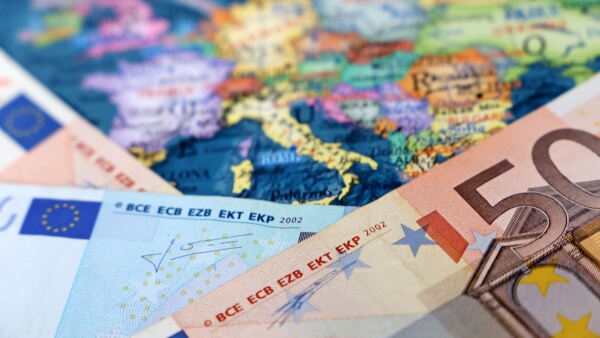
Looking for a way to manage your spending while travelling? Read our guide on the Morrisons Travel Money exchange rate and other key features.

Should you pay with cash or card in Barbados? A handy guide including cash etiquette, Barbadian ATMs and using your UK card.
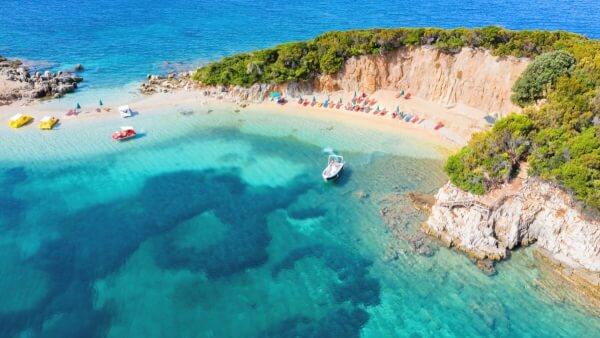
Should you pay with cash or card in Albania? A handy guide including cash etiquette, Albanian ATMs and using your UK card.
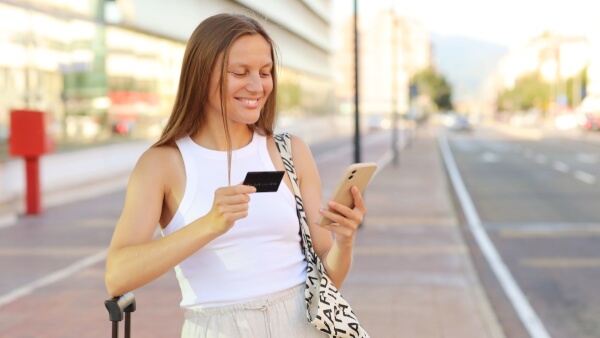
Discover how to use your Metro Bank debit card overseas. Our guide covers foreign transaction fees, exchange rates, and tips for holiday spending.
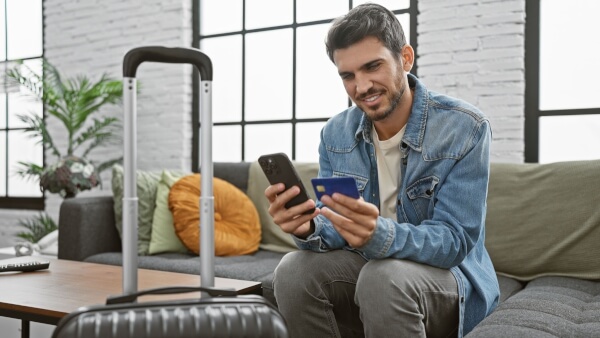
Getting ready for a trip? Read our guide on the Barclays travel credit card and plan your holiday spending.
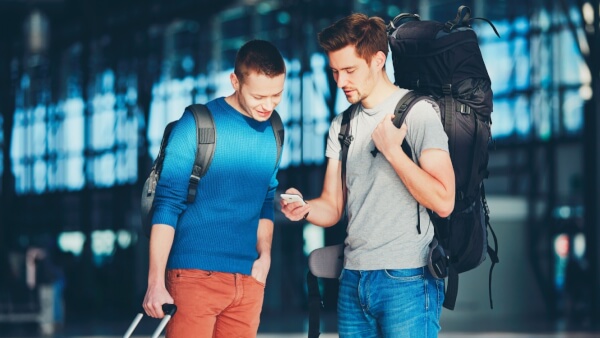
Getting ready for a trip? Read our guide on the HSBC travel credit card and plan your holiday spending.